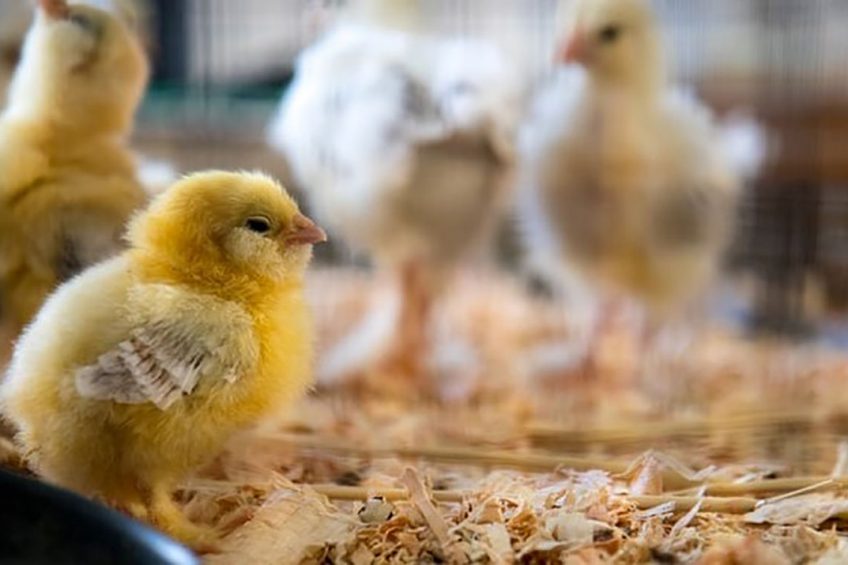Distress calls and performance of chicks analysed

Researchers believe that distress call monitoring may be a real-time marker of both emotional state and environmental stressors on poultry farms.
Recent research published in The Royal Society on broiler chicks’ distress call behaviour was conducted by a team of animal welfare and behavioural scientists from the UK.
Distress calls triggered by discomfort rather than loud noises
The researchers collected and analysed automated whole-house recordings on 12 typical commercial broiler flocks of 25,000 birds.
In response to a range of environmental stressors, and elicit food calling and brooding from hens, chicks make repetitive, high energy ‘distress’ calls when stressed. Distress calling appears not to be triggered directly by acute, startling stimuli such as loud noises, but rather discomfort or risky contexts such as heat stress, cold stress, maternal signalling of threat, high density or food/water restriction or social isolation.
 Sustainability and Welfare
Sustainability and Welfare
If you missed out on the live session, the webinar is now available to view.
Stress is energetically costly to chicks
In chickens, early-life welfare constraints often predict late-life welfare concerns. One mechanism linking life stages is that stress is energetically costly: altered scope to invest in concurrent growth and immune function at critical points in development has consequences for downstream phenotype and mortality risks. In broilers, for example, elevating corticosterone to mimic stress exposure suppresses weight gain and heart development, increases oxidative damage and shifts investment from musculoskeletal growth and into fat deposition and antioxidant production.
 UK egg farmer plays music to his hens
UK egg farmer plays music to his hens
Egg producer Glenn Haggart has for the past 4 years been trialling sounds and music in hen sheds to his 64,000 birds. And he believes so strongly that music is making a difference to his hens.
Iceberg indicator
Spectral entropy was predictive of important commercial and welfare-relevant measures: low median daily spectral entropy predicted low weight gain and high mortality, not only into the next day, but towards the end of production.
Within the field of precision livestock farming, the researchers believe that this work shows the potential for simple descriptors of the overall acoustic environment to be a novel, tractable and real-time ‘iceberg indicator’ of current and future welfare. An ‘iceberg’ welfare indicator is a single marker that covaries with a range of physical, behavioural and emotional welfare concerns. Lead author, and lecturer in physiology and behaviour at the University of Plymouth, Dr Katherine Herborn, says that on their first day in the barn, all chicks are going to call because they’re in strange surroundings, but they learn where to find food and water and settle into their surroundings. However, if you are still hearing a lot of distress calling after a few days, it could be a sign that there is something wrong, she says.













